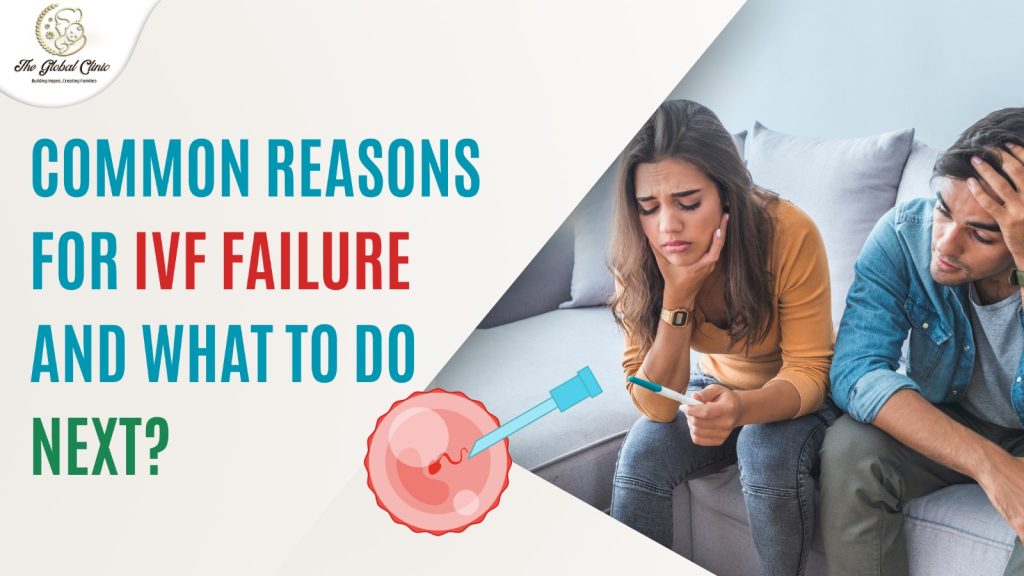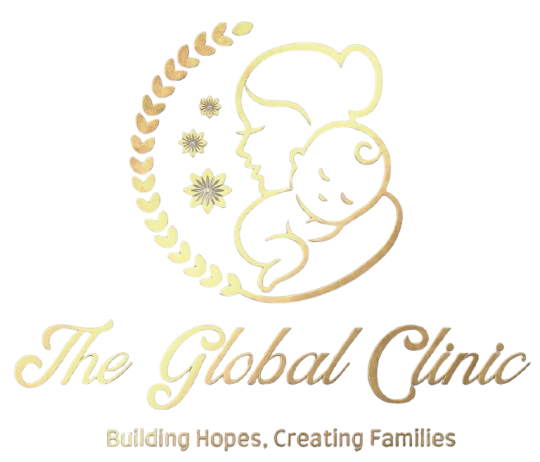
In vitro fertilization (IVF) offers hope to many couples, but not every cycle succeeds. If you’ve experienced an unsuccessful IVF attempt, it’s natural to feel disappointed — but understanding why it happened and what to do next can greatly improve future chances. Dr. Ramya Mishra at The Global Clinic, a trusted IVF Doctor in Greater Noida and regarded among the Best Fertility & IVF Specialists in Greater Noida, outlines common causes of IVF failure and practical next steps.
Common Causes of IVF Failure
1. Embryo quality
- Poor embryo development is a leading cause of failed implantation. Chromosomal abnormalities (aneuploidy) in embryos increase with maternal age and reduce the likelihood of successful pregnancy.
2. Uterine factors and implantation issues
- Structural problems (fibroids, polyps, uterine septum), thin endometrium, or chronic inflammation (endometritis) can prevent the embryo from implanting properly.
3. Egg and sperm quality
- Low ovarian reserve, poor egg quality, or male factor issues (low sperm count, motility or DNA fragmentation) can affect fertilization and embryo development.
4. Immunological and thrombophilic factors
- In some patients, immune or blood clotting disorders may interfere with implantation or early embryo survival.
5. Unrecognized uterine infections or chronic inflammation
- Subclinical infections or persistent inflammation can create an unfavorable environment for embryos.
6. Laboratory and procedural variables
- Although rare at accredited clinics, laboratory conditions, culture media, and embryo transfer technique can influence outcomes.
7. Lifestyle and systemic health factors
- Smoking, obesity, uncontrolled diabetes, thyroid dysfunction, and high stress levels may negatively impact IVF success.
What to Do Next: Practical Steps After a Failed IVF Cycle
1. Request a thorough cycle review
- Ask your IVF team for a detailed analysis: ovarian stimulation response, egg retrieval numbers, fertilization rates, embryo grading, and specifics of the transfer. A clear review highlights where improvements could be made.
2. Consider genetic testing of embryos (PGT-A)
- Preimplantation genetic testing for aneuploidy helps identify chromosomally normal embryos, increasing implantation odds and lowering miscarriage risk — especially useful for patients of advanced maternal age or recurrent IVF failure.
3. Evaluate uterine health
- Undergo hysteroscopy, saline sonography (SHG), or pelvic ultrasound to detect polyps, fibroids, adhesions, or septa. Treating these issues before another transfer often improves outcomes.
4. Assess male factor and gamete quality
- Semen analysis with DNA fragmentation testing can identify hidden male-factor issues. Interventions include antioxidant therapy, lifestyle changes, or using testicular sperm retrieval in select cases.
5. Screen for immunological and clotting disorders
- For recurrent implantation failure, testing for antiphospholipid antibodies, natural killer cell activity, and thrombophilias may be considered; targeted treatments (aspirin, heparin, immunomodulation) are individualized.
6. Optimize health and lifestyle
- Achieve a healthy BMI, stop smoking, manage chronic conditions (thyroid, diabetes), and reduce alcohol/caffeine. Small changes can meaningfully improve egg quality and uterine receptivity.
7. Reassess stimulation and lab strategies
- Your clinician may adjust stimulation protocols, try a natural or mild-stimulation cycle, change embryo culture/transfer timing, or opt for blastocyst vs. cleavage-stage transfer depending on prior cycle data.
8. Explore donor or alternative options when appropriate
- If repeated issues stem from poor egg quality or severe male factor, egg or sperm donation, embryo donation, or gestational surrogacy may be discussed sensitively as effective alternatives.
Final Thoughts
A failed IVF cycle is a setback, not the end of the journey. With a structured review and targeted changes, many couples achieve success on subsequent attempts. If you’re seeking expert guidance, schedule a consultation with Dr. Ramya Mishra at The Global Clinic — an experienced IVF Doctor in Greater Noida and one of the Best Fertility & IVF Specialists in Greater Noida — to review your cycle and plan the next best steps tailored to your needs.


